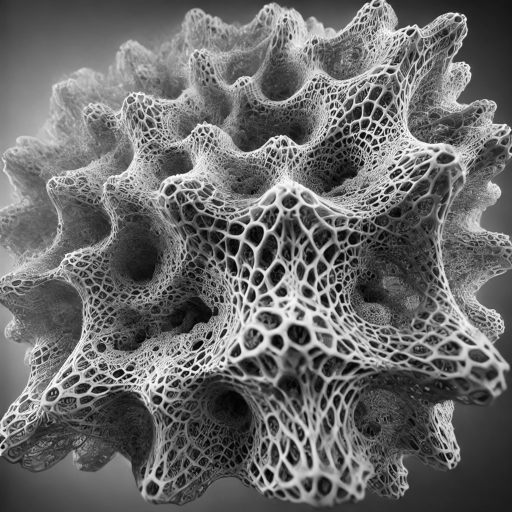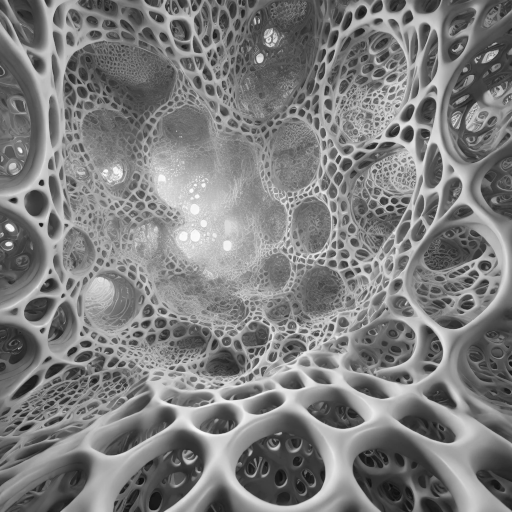Internship Master M2: Computational Design of Evolving Porous Structures
Contract type : Internship agreement
Level of qualifications required : Graduate degree or equivalent
Fonction : Internship Research
Context
Preamble
Ce sujet s'inscrit dans le dispositif PhD tracks du centre Inria de l'Université de Lorraine et antenne de Strasbourg. Ce dispositif vise à attirer et accompagner des éléments prometteurs et motivés, inscrits actuellement en Master 2, vers le doctorat en proposant un financement couplé de quatre ans couvrant stage de Master2 + thèse . Le stage de Master 2, d'une durée de 5 à 6 mois, sera gratifié à 4.35 €/heure (plus ou moins 670 €/mois). Les candidats admis dans le dispositif présenteront en mai 2025 l’avancement de leurs travaux devant un jury qui validera l'entrée en thèse (l’arrêt du PhD track devrait être exceptionnel).
Ce dispositif, le mode de candidature et le calendrier sont décrits dans l'onglet PhD track du site https://www.inria.fr/fr/centre-inria-universite-lorraine
The programme, how to apply and the timetable are described in the PhD track section of the https://www.inria.fr/fr/centre-inria-universite-lorraine website.
Overview
This program allows you to receive funding for your internship and thesis.
If your application is selected, the internship will be remunerated and followed by a PhD offer.
The advantage is that succesful applicants are assured very early in the year (mid-January) that they will receive a thesis grant.
The program, application procedure, and timetable are described in the PhD track section of the https://www.inria.fr/fr/centre-inria-universite-lorraine website.
Future doctoral students will be welcomed into an internship (M2 level or equivalent) and thesis program (the so-called PhD track).
The final decision on thesis funding will be made as early as January 2025 so students can be sure of receiving their thesis grant in mid-January. Internships are compensated in the same way as regular internships.
Important Dates:
* Application Deadline: December 1, 2024
* Selection Decision: Mid-January 2025
* Internship Start Date: First Semester 2025
* PhD Start Date: Second Semester 2025
Assignment
Description
Imagine a universe where porous structures—governed by mathematical functions—constantly evolve, maintaining the same core properties while adapting to new conditions.
This PhD track delves into this evolving realm, using advanced computational techniques to define and optimize these structures for various applications.



Main activities
Overview of Research Objectives
* Internship (5-6 months)
Begin by focusing on 2D porous structures, developing and studying a method that enables their continuous evolution while preserving fundamental properties. The primary objective is understanding the parameters that ensure structural integrity during deformation.
* PhD (3 years)
Expand on the findings from the internship, moving from 2D to 3D porous structures. The PhD will optimize these structures for various mathematical, physical, and visual objectives. Potential applications include enhancing permeability, improving rigidity, and mimicking natural forms.
This program is ideal for students interested in pushing the boundaries of computational design of porous structures.
The PhD track allows you to:
* Work on groundbreaking research in a field with applications in engineering, material science, and computer graphics.
* Secure early funding for both your internship and PhD.
Benefits package
- Subsidized meals
- Partial reimbursement of public transport costs
- Leave: 7 weeks of annual leave + 10 extra days off due to RTT (statutory reduction in working hours) + possibility of exceptional leave (sick children, moving home, etc.)
- Possibility of teleworking (after 6 months of employment) and flexible organization of working hours
- Professional equipment available (videoconferencing, loan of computer equipment, etc.)
- Social, cultural and sports events and activities
- Access to vocational training
- Social security coverage
Remuneration
Internship bonus: €4.35/hour (plus or minus €670/month)
Remuneration for thesis: €2100 gross/month the 1st year
General Information
- Theme/Domain :
Interaction and visualization
Scientific computing (BAP E) - Town/city : Villers lès Nancy
- Inria Center : Centre Inria de l'Université de Lorraine
- Starting date : 2025-03-01
- Duration of contract : 6 months
- Deadline to apply : 2024-12-01
Warning : you must enter your e-mail address in order to save your application to Inria. Applications must be submitted online on the Inria website. Processing of applications sent from other channels is not guaranteed.
Instruction to apply
Defence Security :
This position is likely to be situated in a restricted area (ZRR), as defined in Decree No. 2011-1425 relating to the protection of national scientific and technical potential (PPST).Authorisation to enter an area is granted by the director of the unit, following a favourable Ministerial decision, as defined in the decree of 3 July 2012 relating to the PPST. An unfavourable Ministerial decision in respect of a position situated in a ZRR would result in the cancellation of the appointment.
Recruitment Policy :
As part of its diversity policy, all Inria positions are accessible to people with disabilities.
Contacts
- Inria Team : MFX
-
Recruiter :
Martinez Bayona Jonas / jonas.martinez-bayona@inria.fr
About Inria
Inria is the French national research institute dedicated to digital science and technology. It employs 2,600 people. Its 200 agile project teams, generally run jointly with academic partners, include more than 3,500 scientists and engineers working to meet the challenges of digital technology, often at the interface with other disciplines. The Institute also employs numerous talents in over forty different professions. 900 research support staff contribute to the preparation and development of scientific and entrepreneurial projects that have a worldwide impact.